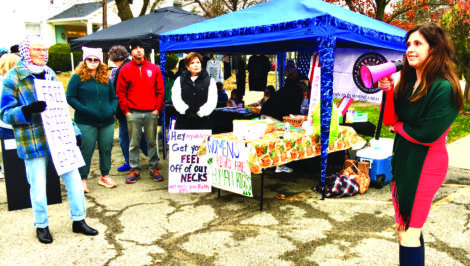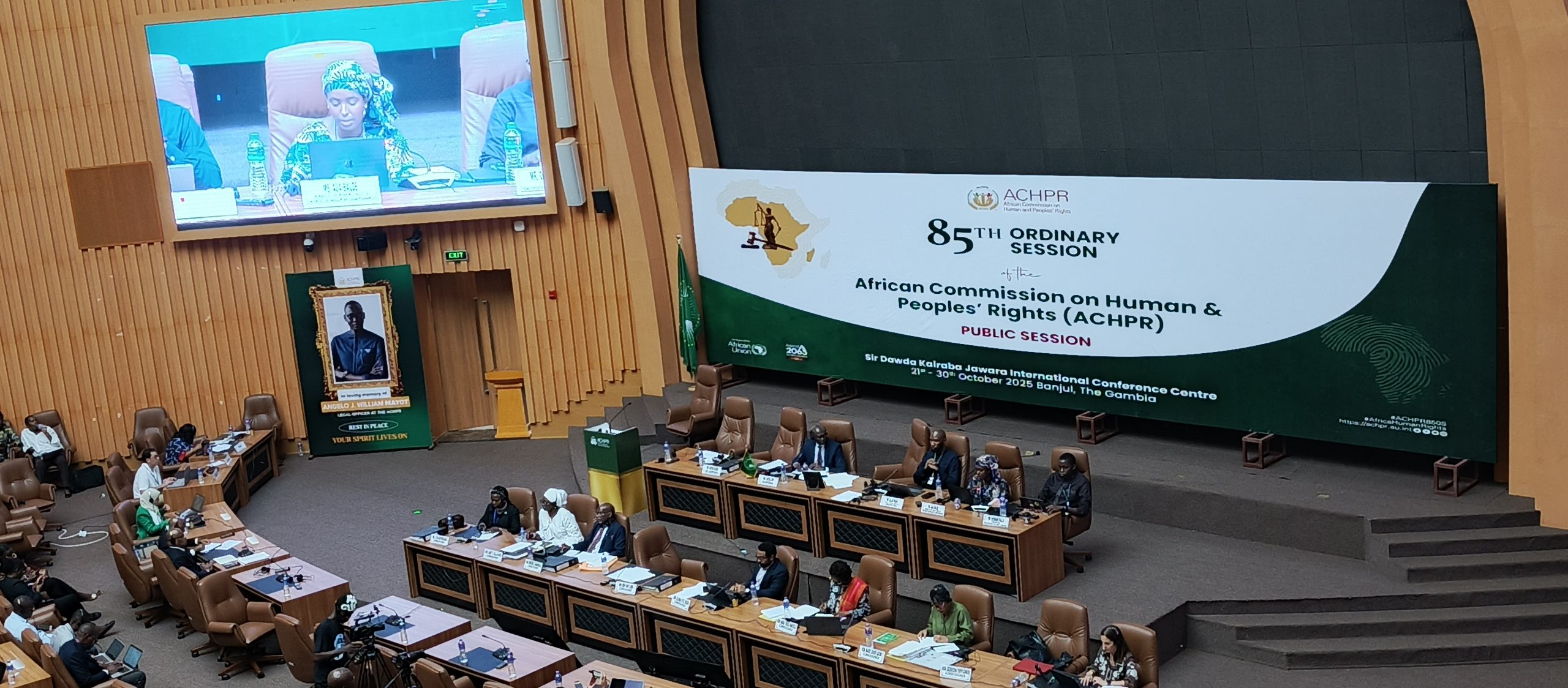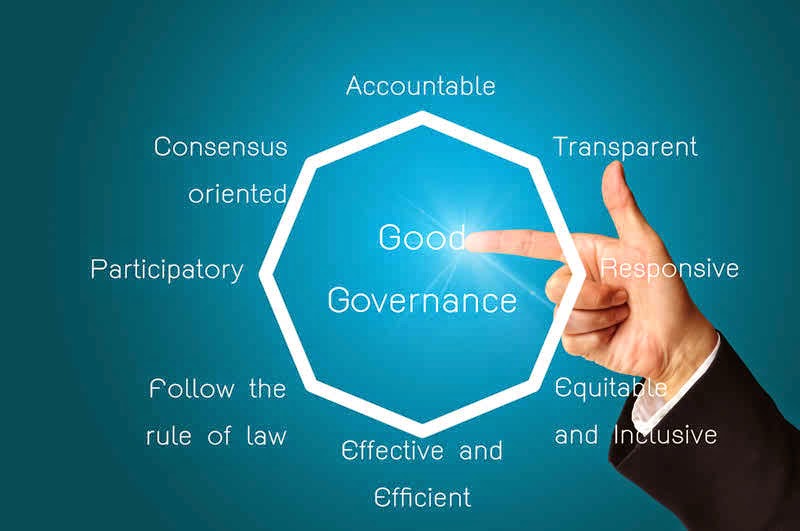Safeguarding LGBTQ+ people in Ghana: Interview with Joskine Atsuvia, human rights activist – Global Voices

Report on Human Rights and Digital Safety for LGBTQ+ Individuals in Ghana
Legislative Context and Implications for Sustainable Development Goals
Renewed legislative efforts in Ghana to pass the Human Sexual Rights and Family Values Act, 2024, present a significant threat to fundamental human rights and the achievement of several Sustainable Development Goals (SDGs). The proposed bill, which criminalizes the advocacy and organization of LGBTQ+ activities, directly contravenes the principles of SDG 10 (Reduced Inequalities) by institutionalizing discrimination based on sexual orientation. Furthermore, it undermines SDG 16 (Peace, Justice and Strong Institutions) by weakening legal protections for a marginalized community and fostering an environment of fear and persecution. The experiences of human rights defenders on the ground illustrate the severe impact of this hostile legal and social climate.
Case Study: Solomon Joskine Kwashie Atsuvia
The situation is exemplified by the testimony of Solomon Joskine Kwashie Atsuvia, a Ghanaian human rights defender, queer activist, and global health advocate. His work and personal experiences highlight the intersection of digital rights, public health, and human dignity.
- Advocacy Focus: Mr. Atsuvia’s work centers on LGBTQ+ rights, HIV advocacy, and the protection of marginalized communities, aligning with the objectives of SDG 3 (Good Health and Well-being). He serves as a Ghana Community Advisory Team member for the Digital Health and Rights Project.
- Personal Experience with Persecution: As a queer man, Mr. Atsuvia has been a target of severe online abuse, including homophobic harassment, doxing, and death threats. This persecution creates a climate of anxiety and isolation, negatively impacting the mental health and well-being of individuals, a key concern under SDG 3. A specific incident in 2023 involved his photos being circulated with derogatory captions, leading to threats that forced him to relocate temporarily for his safety.
Systemic Challenges and Responses
Inadequacy of Protection Mechanisms
Efforts to seek recourse for online attacks reveal significant systemic failures, hindering progress toward SDG 16. While platforms like Meta sometimes respond to reports, the process is often slow and inconsistent. Reporting to Ghanaian authorities is frequently ineffective due to the criminalized status of LGBTQ+ individuals, which can expose victims to further stigmatization and victimization. The Cyber Security Act of Ghana has proven insufficient in protecting LGBTQ+ survivors of online abuse, demonstrating a critical gap in the state’s ability to provide justice for all citizens.
The Role of Civil Society
In the absence of effective state protection, civil society organizations have become crucial actors. This reflects the importance of SDG 17 (Partnerships for the Goals), where non-state actors fill critical gaps.
- Organizations like Rightify Ghana and Amnesty International provide digital safety training and education for LGBTQ+ individuals.
- Rightify Ghana collaborates with social media platforms to report and remove offensive content, though these actions remain largely reactive.
Recommendations for Advancing Digital Rights and SDGs
A Comprehensive Approach to Safety and Equality
Addressing the multifaceted challenges requires a comprehensive strategy that integrates human rights principles both online and offline. The following recommendations are essential for ensuring the safety of LGBTQ+ individuals and advancing Ghana’s commitment to the Sustainable Development Goals.
- Government and Legal Reform (SDG 10 & SDG 16):
- Governments must officially recognize online harms against LGBTQ+ persons as human rights violations.
- The decriminalization of LGBTQ+ identities is a fundamental prerequisite for ensuring both online and offline safety.
- Digital protection laws, such as the Cyber Security Act, must be enforced and amended to be explicitly inclusive of marginalized communities.
- Corporate Responsibility and Community Empowerment (SDG 17):
- Technology companies must invest in localized content moderation and develop safer, more responsive reporting mechanisms tailored to the needs of LGBTQ+ users.
- Support for grassroots digital literacy programs is essential to empower communities with the knowledge to protect themselves online.
Ultimately, achieving a safe digital environment for LGBTQ+ Ghanaians is inseparable from the broader struggle for human rights and legal equality. Upholding these rights is critical for fostering inclusive societies and realizing the universal promise of the Sustainable Development Goals.
Analysis of Sustainable Development Goals in the Article
1. Which SDGs are addressed or connected to the issues highlighted in the article?
- SDG 3: Good Health and Well-being: The article connects to this goal through the work of the activist, Solomon Atsuvia, who is a “global health advocate” focusing on “HIV advocacy, and the protection of marginalized communities, including sex workers and PLHIV [people living with HIV].” The hostile environment and proposed legislation threaten the health and well-being of LGBTQ+ individuals and impede efforts to combat diseases like HIV by marginalizing key populations.
- SDG 10: Reduced Inequalities: This is a central theme of the article. The “Human Sexual Rights and Family Values Act” is a discriminatory bill that targets a specific group based on their sexual orientation. The article details the social exclusion, harassment, and lack of protection faced by LGBTQ+ people in Ghana, which are direct manifestations of inequality. The goal aims to “empower and promote the social, economic and political inclusion of all, irrespective of… other status,” which is the opposite of what the bill promotes.
- SDG 16: Peace, Justice and Strong Institutions: The article highlights multiple aspects of this goal. It describes various forms of violence (“online abuse,” “threats of physical harm,” “death threats”) and the failure of institutions to provide justice and safety. The activist notes that “authorities provide little to no protection” and that existing laws like “Ghana’s Cyber Security Act” are ineffective for LGBTQ+ survivors. The entire article is a call for justice, the rule of law, and the repeal of discriminatory legislation, which are core to building peaceful and inclusive societies with strong institutions.
2. What specific targets under those SDGs can be identified based on the article’s content?
- Target 3.3: “By 2030, end the epidemics of AIDS, tuberculosis, malaria and neglected tropical diseases…” The article mentions the activist’s work in “HIV advocacy” and with “PLHIV [people living with HIV].” The criminalization and persecution of LGBTQ+ individuals create significant barriers to public health outreach and education, directly threatening progress on this target.
- Target 10.2: “By 2030, empower and promote the social, economic and political inclusion of all, irrespective of age, sex, disability, race, ethnicity, origin, religion or economic or other status.” The article provides clear evidence of the opposite, describing how the bill “emboldens… social exclusion” and forces queer people to “live in hiding or face persecution.” The activist’s personal experience of having to “relocate, and stay off online temporarily” exemplifies this exclusion.
- Target 10.3: “Ensure equal opportunity and reduce inequalities of outcome, including by eliminating discriminatory laws, policies and practices…” The “Human Sexual Rights and Family Values Act” is explicitly a “discriminatory” law that this target seeks to eliminate. The activist’s call to “continue pushing back against such regressive laws” aligns directly with this target.
- Target 16.1: “Significantly reduce all forms of violence and related death rates everywhere.” The article details multiple forms of violence, including “online abuse,” “targeted homophobic slurs,” “threats of physical harm,” “death threats,” and “doxing.” These are the exact forms of violence this target aims to reduce.
- Target 16.3: “Promote the rule of law at the national and international levels and ensure equal access to justice for all.” The article indicates a failure to meet this target, as the activist states that “authorities provide little to no protection” for LGBTQ+ people and that reporting abuse can expose victims to “further victimization.” This demonstrates a clear lack of equal access to justice.
- Target 16.B: “Promote and enforce non-discriminatory laws and policies for sustainable development.” The central issue of the article is the fight against the anti-LGBTQ+ bill, a discriminatory law. The call for “decriminalization and legal protections for LGBTQ+ people” is a direct appeal for the promotion and enforcement of non-discriminatory laws as envisioned by this target.
3. Are there any indicators mentioned or implied in the article that can be used to measure progress towards the identified targets?
- Existence of discriminatory laws and policies: The primary indicator is the status of the “Human Sexual Rights and Family Values Act.” Its reintroduction into parliament is a negative indicator for targets 10.3 and 16.B. Its potential passage or defeat would be a clear measure of progress or regression.
- Prevalence of reported violence and harassment: The activist’s testimony of receiving “hate speech, and threatening messages” and being “doxed” serves as a qualitative indicator of violence (Target 16.1). The mention of reporting “several cases of online abuse… to the Meta Team” implies that the frequency of such reports could be used as a quantitative indicator.
- Access to and trust in the justice system: An indicator for Target 16.3 is the lack of protection from authorities and the fear of reporting crimes. The statement that “many choose not to report out of fear” and that Ghana’s “Cyber Security Act has and is doing very little” for LGBTQ+ survivors are direct indicators of the justice system’s failure to provide equal access and protection.
- Level of social inclusion and safety: The need for LGBTQ+ individuals to “rely on encrypted platforms and private channels to connect” and the activist’s need to “relocate” after being threatened are strong indicators of social exclusion and lack of safety, relevant to Target 10.2.
- Effectiveness of digital platform moderation: The article mentions that responses from tech platforms to reports of abuse are “largely reactive and inconsistent.” The speed and effectiveness of content moderation by companies like Meta, X (Twitter), and TikTok are mentioned as an important factor and can serve as an indicator for digital safety.
4. Table of SDGs, Targets, and Indicators
| SDGs | Targets | Indicators Identified in the Article |
|---|---|---|
| SDG 3: Good Health and Well-being | 3.3: End the epidemics of AIDS and other communicable diseases. | The ability of health advocates to conduct HIV advocacy and support PLHIV without fear of persecution due to discriminatory laws. |
| SDG 10: Reduced Inequalities | 10.2: Empower and promote the social, economic and political inclusion of all. | The level of social exclusion, indicated by LGBTQ+ individuals being forced to hide, relocate for safety, and use private channels to communicate. |
| 10.3: Ensure equal opportunity and reduce inequalities of outcome, including by eliminating discriminatory laws. | The existence and legislative status of the “Human Sexual Rights and Family Values Act.” | |
| SDG 16: Peace, Justice and Strong Institutions | 16.1: Significantly reduce all forms of violence and related death rates everywhere. | The prevalence of online abuse, doxing, hate speech, and threats of physical harm and death against LGBTQ+ individuals. |
| 16.3: Promote the rule of law and ensure equal access to justice for all. | The lack of protection from authorities for LGBTQ+ victims; the ineffectiveness of the Cyber Security Act for this community; the fear of reporting abuse due to risk of further victimization. | |
| 16.B: Promote and enforce non-discriminatory laws and policies for sustainable development. | The pushback against the anti-LGBTQ+ bill and the call for decriminalization and legal protections for LGBTQ+ people. |
Source: globalvoices.org

What is Your Reaction?
 Like
0
Like
0
 Dislike
0
Dislike
0
 Love
0
Love
0
 Funny
0
Funny
0
 Angry
0
Angry
0
 Sad
0
Sad
0
 Wow
0
Wow
0














































































